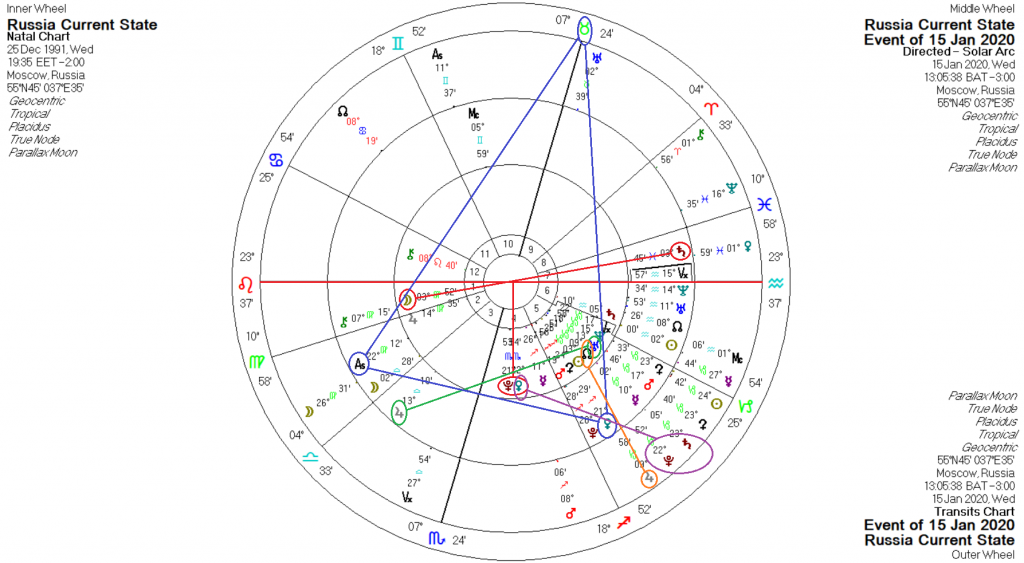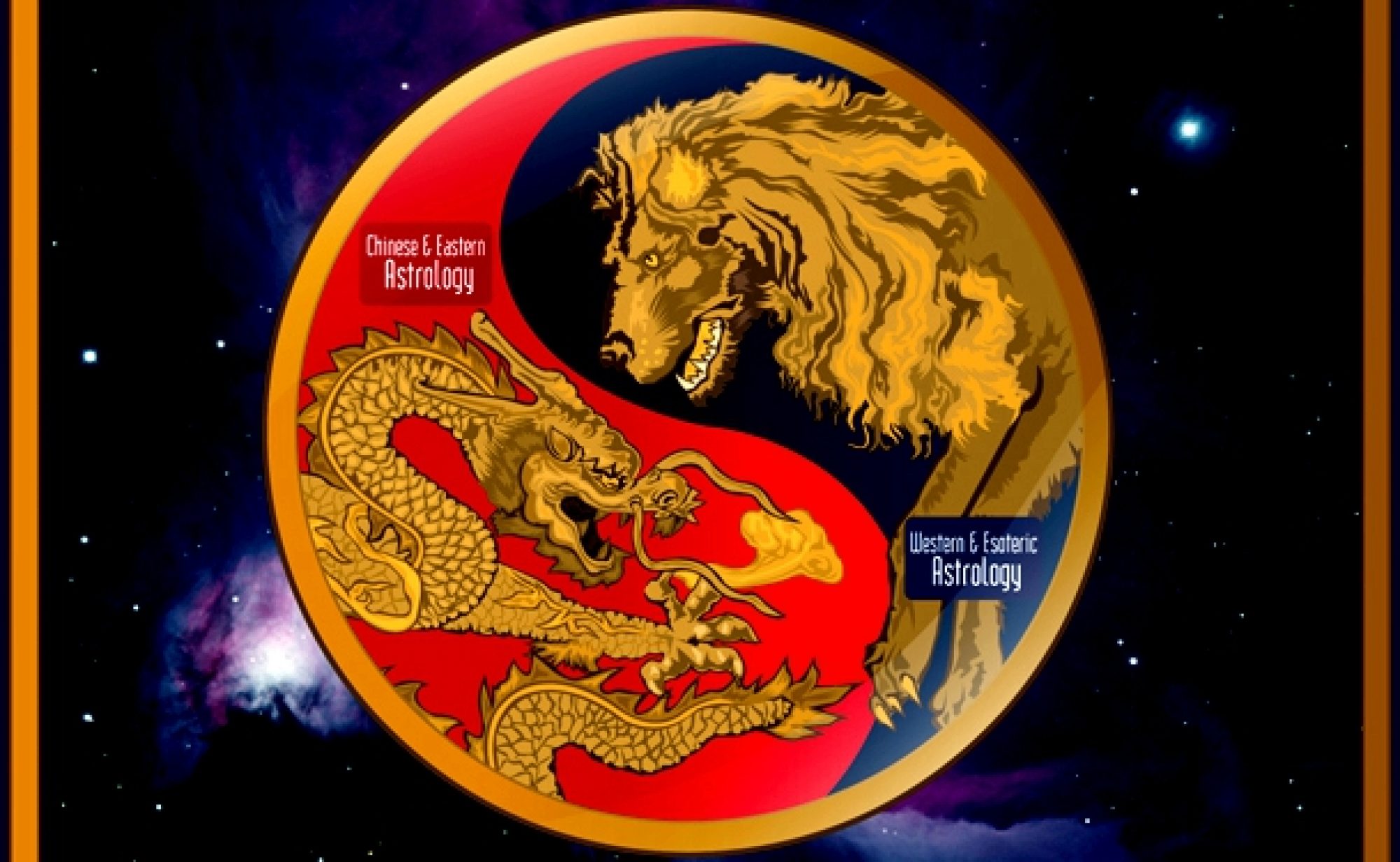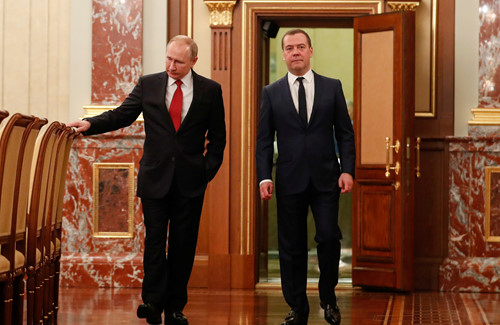You read that title correctly. On 15 Jan this year, Medvedev and his entire cabinet resigned. But, before Russia and Putin critics get too excited, the establishments in the Western nations are not going to like what happens next. After years of being ignored, vilified, ostracized and threatened by the West – by the US and UK especially – Russia has decided now to think of herself first, of her citizenry, and is pulling away from globalism as it has existed in these past years, as well as from entanglements with neoliberal economics and the ‘rule of law’ as put forward by the West. Expect for demonization of Russia and all sorts of wild speculation to spike now in the Western press. “Putin has weaponized Russian sovereignty!”
What just happened in Russia, in reality, that is? Not many people know for certain. But Medvedev’s resignation came as a surprise and on the heels of Putin’s address to the Federal Assembly the day before. The main takeaways from that were as follows, and in this regard, it is important that we go through the entire speech. There is actually a lot in it, and much of interest, as it turns out. It was in four parts, and started with domestic policy, as follows:
- The care and nurturing of families, with an aim toward increasing the birth rate and toward what the children born into those families will do for the nation into the future
- Addressing challenges to family incomes, providing day care for all families, graduated payments to all families with children up to a certain age, and especially to low-income families and single mothers.
- Increases in social contracts, including vocational training, with the aim toward decreasing poverty, finding employment and starting small businesses. Success of such efforts is to be gauged by the decrease in poverty figures.
- Reduced mortgage rates for families (People in Russia own their living quarters by a high percentage. They don’t rent.)
- Providing free, hot and healthy food in school cafeterias
- A particular focus on family values, which is worth reading:
…family is love, happiness, the joy of motherhood and fatherhood, that family is a strong bond of several generations, united by respect for the elderly and care for children, giving everyone a sense of confidence, security, and reliability. If the younger generations accept this situation as natural, as a moral and an integral part and reliable background support for their adult life, then we will be able to meet the historical challenge of guaranteeing Russia’s development as a large and successful country.
- Increased pay and training for teachers, seen as an important interface between family and adulthood.
- Free university education, with upgrades in infrastructure
- Upgrades to healthcare, especially in rural areas. This will include upgrades in training medical specialists and doctors in general, with the aim of returning them to the community. It also includes regulation of the pharmaceutical industry and imports.
These were the very first items addressed by Putin in his speech. Bernie Sanders would be salivating, as would many Americans. But as stated in the first paragraph, the Western elites are not going to like it. Why? – Because it flies in the face of globalist and neoliberal policy. It is socialist policy, even though Putin is not a communist or socialist. What he has outlined instead would be closer to FDR’s policies with the New Deal. It would put what we see in most of the West to shame, if it can be implemented. Given Putin’s record, we can probably expect that most of those measures will be enacted. Let’s read a little between the lines here, then.
Two years ago Putin’s address to the Federal Assembly was about advanced weaponry. In that address he told the Russian people that they had been made secure. Those weapons have since been demonstrated. Western pundits scoffed at the time. Their silence on those matters now is telling. Now, he is saying to the Russian people, “We have your back. You can go forward into the future with security, and we (the state) are going to help you.” This is what the Russian people have been waiting to hear since Putin took office 20 years ago. There will be no arms race to take away from the social programs outlined. The US, for instance, will take years to catch up to what Russia has, and Russia just keeps on going from strength to strength. If you have doubts about this, there are a couple of books you need to read (found on the linked site).
Putin then moved on to economic policy:
- Tax laws protecting development and business will remain unchanged and even extended.
- “…create conditions for a substantial increase in people’s real incomes. Again, this is the most important responsibility of the Government and the Central Bank. To meet it, the national economy needs structural changes and higher efficiency. In 2021, Russia’s GDP growth rates should be higher than the global ones.”
- Reform of the oversight and supervisory activities to be completed this year.
- Removal of vague criminal law provisions in part related to fraudulent businesses.
- Infrastructure projects, particularly roads, and particularly in rural areas, which will encourage business
- The addressing of emissions quotas for businesses (addressing climate change) with nationwide monitoring of air quality
- The Central Bank to address long-term money and digital transfers
- Free internet nation-wide, the use of domestic software
- A large emphasis on start-ups and tech development
Then, he moved on to the international scene. Note, at this point, 2/3 of the way through his speech, he has not addressed international affairs. The Russian economy is sound, has reserves over 7% of GDP and can afford to invest in infrastructure and the people. As to international matters:
- The need for the 5 nuclear states to render the world a safer place, to remove the possibility of nuclear conflict
- Russia’s defenses are in advance of everyone else. They seek only to cooperate, not enforce their will. From the basis of security, Russia can now move forward.
The latter was one of his most important statements to the world at large. Then he moved on to Russian law and their constitution, which is supposedly, as Western pundits would have it, why Medvedev resigned:
- “Firstly, Russia can be and can remain Russia only as a sovereign state. Our nation’s sovereignty must be unconditional.” (This point will be important later)
- “…requirements of international law and treaties as well as decisions of international bodies can be valid on the Russian territory only to the point that they do not restrict the rights and freedoms of our people and citizens and do not contradict our Constitution.”
- “I suggest formalising at the constitutional level the obligatory requirements for those who hold positions of critical significance for national security and sovereignty. More precisely, the heads of the constituent entities, members of the Federation Council, State Duma deputies, the prime minister and his/her deputies, federal ministers, heads of federal agencies and judges should have no foreign citizenship or residence permit or any other document that allows them to live permanently in a foreign state.
The goal and mission of state service is to serve the people, and those who enter this path must know that by doing this they inseparably connect their lives with Russia and the Russian people without any assumptions and allowances. Requirements must be even stricter for presidential candidates. I suggest formalising a requirement under which presidential candidates must have had permanent residence in Russia for at least 25 years and no foreign citizenship or residence permit and not only during the election campaign but at any time before it too.”
- “…the Constitution must seal the principles of a unified system of public authority and effective interaction between the federal and municipal authorities. At the same time, the powers and practical opportunities of the local governments, a body of authority that is closest to the people, can and should be expanded and strengthened.”
- “I believe it is necessary to cardinally increase the role of governors in decision-making at the federal level.”
- “allowing the State Duma to appoint the Prime Minister of the Russian Federation, and then all deputy prime ministers and federal ministers at the Prime Minister’s recommendation. At the same time the President will have to appoint them, so he will have no right to turn down the candidates approved by the Parliament.”
Then came the clincher for Medvedev, we think:
- “…our country, with its vast territory, complex federal and administrative division and diverse cultural and historical traditions, cannot properly advance and even exist sustainably as a parliamentary republic. Russia must remain a strong presidential republic. The president must undoubtedly retain the right to determine the Government’s tasks and priorities, as well as the right to dismiss the prime minister, his deputies and federal ministers in case of improper execution of duties or due to loss of trust. The president also exercises direct command over the Armed Forces and the entire law enforcement system. In this regard, I believe another step is necessary to provide a greater balance between the branches of power.”
- “I propose that the president should appoint heads of all security agencies following consultations with the Federation Council. I believe this approach will make the work of security and law enforcement agencies more transparent and accountable to citizens.” [Medvedev was then appointed as Deputy Chairman of the Security Council upon his resignation. So, he is still close to Putin.]
- “I believe it necessary to hold a vote of Russian citizens on the entire package of the proposed amendments to the Constitution of the Russian Federation. The final decision must be made only on the basis of its results.”
Putin went on to say that in order to further the progress of the nation it was important that leadership positions be rotated on a regular basis. And there we have it, the entire speech. There were only a few paragraphs that addressed international concerns. The main points of the speech were about Russian sovereignty and domestic affairs, with the add-on at the end about the Russian constitution.
Medvedev has been succeeded by Mikhail Mishustin, Head of the Federal Tax Service since 2010. He is relatively unknown. But if we look a little deeper, with regard to the economics in the speech, Mishustin was the father of the modern Russian tax miracle, described as a very good and progressive technocrat. From this we see that the new PM of Russia for this term will be focused on financial matters and the growth of the Russian economy, overhaul of tax laws and the implementation of the social programs that Putin outlined. From the little I know about Russia, this has all been planned for some time. Russia is slow to act, but when she does, things go rather quickly.
What shows in the chart of the Russian Federation, then? The chart with directions and transits is below (bigger):

Several things stand out. Firstly, the transiting Saturn/Pluto conjunction is sextile Venus, the latter ruling the 10th house (the sitting government) and the 3rd house (commerce, communications and media). This represents big, long-range planning (Saturn/Pluto) and the change of direction for the government. The transiting conjunction is also in the 5th house (children and schools), hence the emphasis in Putin’s speech on family, children and schools. This is a big deal for Russians, and it will restore faith in the government, especially after the retirement debacle that caused Putin’s polling numbers to drop. His approval rating is still at 70+ percent.
Next are the simultaneous directions of Venus and the Ascendant to the Russian MC, which forms a midpoint by direction, Ven/Asc=MC: “An affectionate and harmonious person, a sense of beauty, an appreciation of art, artistic inclinations, beautification of the environment. – Union with another person through the bonds of love.”
Transiting Jupiter was on the Russian north node, showing a positive and expansive shift in relationships, common-interest groups, and communities of people in general. This was also reflected in the speech.
There was a direction of Jupiter to the Russian Uranus. Ebertin called this the ‘Thank the Lord!’ combination, as it can signify the sudden release of tensions, with a consequent brighter outlook on life. Then finally, there is the direction of Saturn opposite the Russian Moon. The Moon in the Federation chart is well-aspected, being trine the Sun, in a wide conjunction with Jupiter and also in a wide trine to the MC. The Moon rules the 12th house in the Federation chart. This direction indicates the overhaul of certain institutions in Russian society. In the positive, which this would be, that direction also gives adherence to family values, as well as to vocation and inherited positions. It especially impacts women and gender imbalances, which Putin sought to address in his speech.
Finally, looking at the astrology, there is a directed midpoint, Sun/Ura, to the Russian MC, showing clearly the reforms to be undertaken. This is one of the ‘revolution’ midpoints, but it is within orb now, showing that whatever was planned a few years ago is now being ‘put to paper’, i.e., finalized. This is yet another indication that the resignation had been planned well in advance. If we remember, Russians were upset when Putin chose Medvedev to be PM at the last election – “Anyone but Medvedev!” But to me, what is taking place now was already in the planning stages then.
The interesting thing here is that Western media choose to focus on the statement by Putin that Russia must remain a strong presidential republic, placing firm power in the hands of a nation’s chief executive. This they try to cast as a power grab. There are a couple of problems with that view, though. Firstly, he also stated that leadership positions should be rotated on a periodic basis. And then, the statement that shoots down speculation that he is seeking to stay on past his 2024 term limit: The changes to the constitution would place more power in the hands of the Duma.
Why did Medvedev really resign, then? He stated why in a recent news address with Putin. He did so in order to pave the way for Putin to take more decisive action on what needs to be done in Russia in the next few years, before their 2024 election. There was no visible anger on his part. He did not quit in a fit of pique as some news sources have suggested. The move has obviously been planned for some time. And he is not on the outs with Putin. His assignment as Deputy Chairman of the Security Council makes him Putin’s right-hand man, which he readily accepted. Putin is the Chairman of said council. If he had quit in anger it is doubtful he would have accepted the position so readily.
About Medvedev, he is an Atlanticist. He admired Margaret Thatcher and her neoliberal policies. That is probably why he is not in power now. And the way Russia is turning, it is doubtful he will assume the presidency in the future. There is still a significant strain of neoliberal sentiment in Russia, but it is increasingly under the control of what Putin has put in place. With Medvedev focused on security now, his interests in neoliberalism will be sidelined.
Medvedev’s and Putin’s statements at that news op give one the sense that there is some urgency about what is to be done, which would suggest that Putin is planning his exit from the main role he has had for the past two decades. With the new PM and with Medvedev focused on security (which includes the development of weapons systems), what we are seeing is a streamlining of policy, as well as an overall weakening of the post of president over time.
As was recently stated in a Andrei Martyanov’s blog, who would know Russia better than the vast majority of Western commentators, he had the following to say, regarding Putin’s address to the Assembly:
“[Putin] spoke to Federal Assembly today and it was a dramatic address. My suggestion to you all, before more sober and lucid analysis of what just has happened in Russia (believe me it is absolutely wonderful) appears, to not read or listen to all kind of “analysis” from:
- Western main stream media sources–none of them are knowledgeable and agenda-free ones, all of them are incompetents;
- All kinds of Russian “communist”, “opposition” and other allegedly “left” sources are currently in a deep shock and butt-hurt and Russia’s nominal left, such as KPRF have very little that distinguishes them from Liberda. So, try to avoid their “analysis”.
Mind you, it is merely a suggestion to a free people such as you and you are free to seek out any sources of information and expertise you want. I simply wanted to warn you about a shitstorm which already rages in media sphere after Putin and [the] Siloviki launched the process which majority of Russians were waiting and begging for years now. The time has come and final step to the restoration of a complete sovereignty of Russia has been made. Constitution WILL BE changed. “Westernization” of Russia is over, so is globalization in its present form.”
Emphasis added. The last statement essentially tells us what we need to know about what is happening in Russia now. This has been the fulfilment of Putin’s goals all along – restoring the sovereignty of Russia, which means to him making Russia whole again, to rescue its people and to secure its defenses. This, he has done. And these are the biggest reasons why the Western elites will chafe at what Putin outlined in his speech.
The West had a chance in Putin’s early years for dialog and cooperation with Russia. Putin wanted it, but Washington especially would not have a bar of it, preferring instead to keep antagonisms alive in an attempt to keep Russia down and isolated. It hasn’t worked, and now any further hope of doing so is gone. The pundits can bloviate all they want, but Russia is here to stay, is growing in strength and is displacing the US and other Western powers increasingly in regional matters, not because Russia is aggressive, but instead largely due to Western ignorance of Russia and Washington’s incompetence in dealing with foreign states.
Putin has been called many things, including a dictator, an autocrat, a nationalist and even likened to Hitler. When it comes to it, really, he is a Russian patriot. He is proud of his country, and wants to see it secure and prosperous. And it has become that under his leadership. The sooner we realize it, the better off we would all be. We can probably expect that Putin will have a hand in Russian politics for years to come. Is this a move away from democracy, as some people are suggesting? We’ll have to wait and see. But Russians respect and want order in their society and they have reason to be suspicious of the West, given Russia’s experience with the West since the fall of the Soviet Union.
Russia still has a ways to go, but it has become anything other than “a gas station masquerading as a country”. It is modern and world class in many respects. We could learn a few things, or perhaps remember. We in the West have been fed a lot of guff about Russia. Russia is not the USSR. It’s time we woke up and smelled the Raf, regarding Russia. (I hear it’s pretty good.) Our lives may depend on it.

Featured pic from Sputnik News

